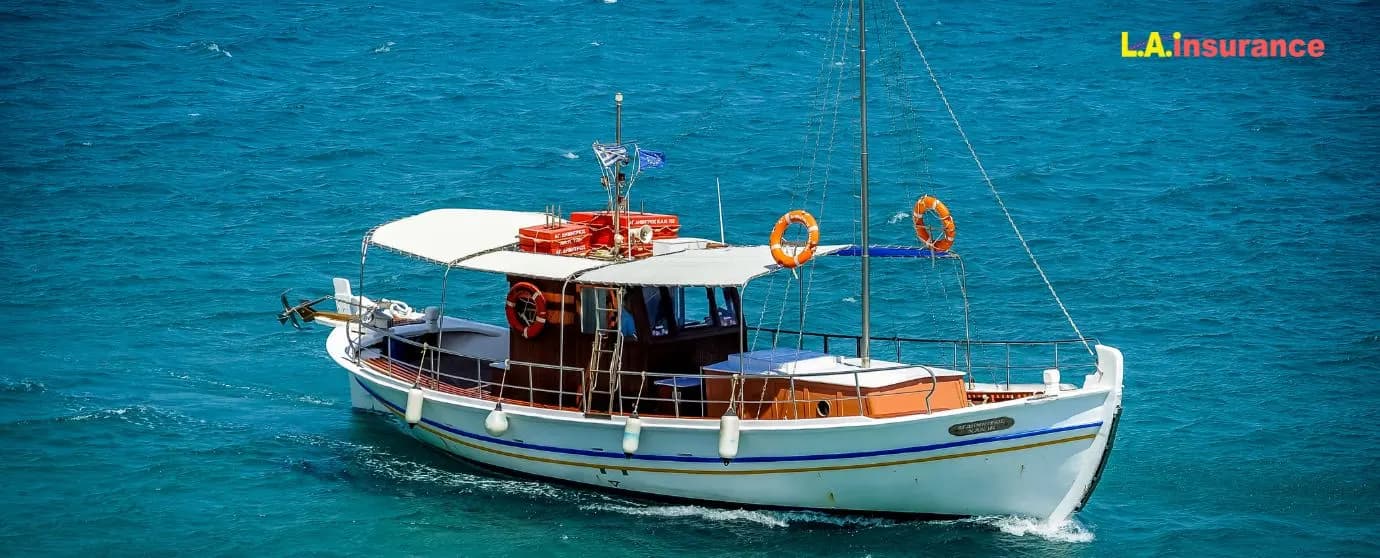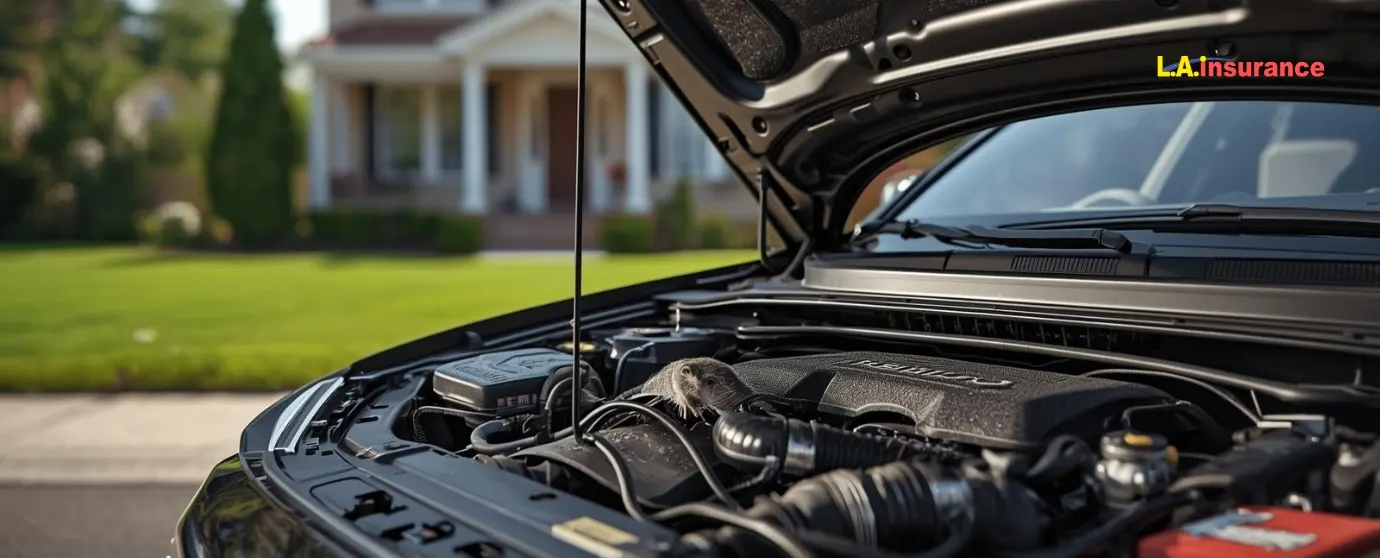
Publish Date: 26-10-2025
Boat & Watercraft Insurance
Last Updated: 17-12-2025
Boat Insurance Requirements by State
Before you make any investment in boat insurance, it is essential to know the legal and financial requirements in your state. Every state has its own set of laws and regulations for boat insurance.
So, the main question for 2025 is: Is boat insurance mandatory in your state? If yes, what are the specific requirements? And if not, what types of coverage should you consider to protect your investment?
In this article, you will learn the boat insurance requirements the boat insurance requirements for every U.S. state. Whether you’re in Michigan, Texas, Arizona, Colorado, or anywhere else, you’ll find the information you need to stay compliant and protected in 2025.
Is Boat Insurance Mandatory?
Yes, boat insurance is mandatory in 3/50 states in the U.S., which include Arkansas, Hawaii, and Utah. Each of these three states has a varying boat insurance requirement as follows.
- Arkansas: It is mandatory to get a minimum liability boat insurance coverage of only $50,000 if your boat has an engine capacity of 50+ horsepower. Generally, personal watercraft such as Jet Ski, SeaDoo, and Waverunner are boats that are commonly equipped with liability boat insurance coverage.
- Hawaii: According to Hawaii’s Division of Boating and Ocean Recreation, it is mandatory to have a minimum liability insurance coverage of at least $100,000, and wreckage removal coverage of a minimum $500,000 for boats that are above 26 feet in length.
- Utah: Boats that have a horsepower of 50 and above must have a minimum coverage of $25,000 to $50,000 for bodily injuries/death, and $15,000 for property damage or $65,000 combined based on Utah’s Division of Outer Creation.
If you want to know more about the requirements of boat insurance in these three states, and several other U.S. states, you should explore our detailed guide on do you have to have insurance on a boat.
Is Boat Insurance Required in All 50 States?
When it comes to legal obligation, boat insurance isn’t a mandatory requirement in all 50 U.S. states except three states, which include Arkansas, Hawaii, and Utah. The table below provides a state-by-state breakdown showing where boat insurance is mandatory and where it is optional as of August 2025.
State | Requirement | Conditions |
Alabama | No | Coverage may be needed if your lender or marina insists. |
Alaska | No | Not legally required, but lenders often make it a condition. |
Arizona | No | You’ll need insurance only if financing or docking rules apply. |
Arkansas | Yes | Liability required for motorboats >50 HP and all PWCs; $50k minimum. |
California | No | Usually optional unless a lender or storage facility demands it. |
Colorado | No | Only necessary if part of a loan or slip rental agreement. |
Connecticut | No | Some marinas and banks will require proof before use. |
Delaware | No | Only comes into play with certain loans or marina contracts. |
Florida | No | Lenders or marinas may still expect you to carry coverage. |
Georgia | No | Optional unless financing or docking conditions require it. |
Hawaii | Conditional | Required for vessels in state facilities or ≥26 ft; proof needed. |
Idaho | No | You might need it for loans or moorage agreements. |
Illinois | No | Some harbors and lenders make it a prerequisite. |
Indiana | No | Required only when tied to a financing or mooring deal. |
Iowa | No | May be requested by lenders or boat storage providers. |
Kansas | No | Comes up only in loan or marina policy requirements. |
Kentucky | No | Not mandatory unless a contract with a lender or dock says so. |
Louisiana | No | Could be required for certain marina leases or loans. |
Maine | No | Some financial institutions or marinas will still ask for it. |
Maryland | No | Mostly optional, except for lender or moorage conditions. |
Massachusetts | No | Only mandatory in specific loan or dock agreements. |
Michigan | No | May be necessary if financing or docking at certain marinas. |
Minnesota | No | Only applies under lender or slip rental requirements. |
Mississippi | No | Sometimes required under marina or financing contracts. |
Missouri | No | Comes into play with some loans or storage arrangements. |
Montana | No | Usually optional unless tied to financing or docking. |
Nebraska | No | May be a term in some loan or marina agreements. |
Nevada | No | Lenders or harbors might require proof of coverage. |
New Hampshire | No | Only needed in certain loan or docking situations. |
New Jersey | No | Occasionally required for loans or marina berths. |
New Mexico | No | May be requested as part of a loan or mooring deal. |
New York | No | Only applies when tied to a financing or slip agreement. |
North Carolina | No | Lenders or dock operators may set it as a condition. |
North Dakota | No | Sometimes part of loan or marina requirements. |
Ohio | No | May be necessary under certain lender or marina policies. |
Oklahoma | No | Only comes up in financing or docking arrangements. |
Oregon | No | Usually optional, except for specific loans or mooring. |
Pennsylvania | No | Lenders or marinas might insist on it. |
Rhode Island | No | May be part of some loan or dock contracts. |
South Carolina | No | Could be required for certain slips or financing deals. |
South Dakota | No | Rarely needed unless tied to loans or mooring. |
Tennessee | No | Applies only under lender or marina agreements. |
Texas | No | Lenders or docks may still require coverage. |
Utah | Yes | Liability required for most motorboats and all PWCs; $25k/$50k/$15k minimums or $65k combined. |
Vermont | No | Might be needed for loans or marina use. |
Virginia | No | Optional unless linked to a financing or slip rental. |
Washington | No | Some lenders or docks make it mandatory. |
West Virginia | No | Only required under certain marina or loan conditions. |
Wisconsin | No | May be part of a financing or docking arrangement. |
Wyoming | No | Only applies if a loan or slip contract demands it. |
Read Also: Is Boat Insurance Required in Michigan?
Boat Insurance Coverages to Consider
Boat insurance is designed to financially protect you from accidents, liability compensations, legal consequences, and unprecedented events like theft, vandalism, and weather calamities. Whether your boat is safely docked at the marina or it’s sailing on the water, there’s always a susceptible risk of accidents leading to a hefty financial loss. So, that’s why it’s crucial to ensure you have the right boat insurance coverage to stay financially secure. Here are some of the options that you can consider adding to your boat insurance policy.
Liability Coverage
If you cause a boating accident that damages another vessel, property, or injures other people, this coverage helps pay for repairs, property replacement, and medical expenses to the other boater and their passengers up to your coverage limits. If you get sued in an at-fault boat accident, the liability insurance coverage will cover the legal expenses to deal with court proceedings and compensate any fine imposed by the court.
Collision Coverage
The collision coverage is specifically designed to financially protect your boat from damages that are incurred by accidental collisions up to your coverage limit, regardless of whoever is at fault. Whether your boat is stationed at the dock or it’s sailing on the water, the collision coverage will cover your boat’s repair and replacement costs if it’s struck by another boat or object.
Comprehensive Coverage
Comprehensive insurance coverage is extremely necessary to protect your boat from unprecedented events such as theft, vandalism, fire outbreaks, and severe weather conditions. Typically, this coverage has been designed to financially safeguard your boat from unexpected events that are beyond your control.
Wreckage Removal Coverage
If your boat accidentally sinks, the cost of just retrieving it from the water can be very expensive. On average, it can cost you a few thousand dollars to over $50,000 to recover a small boat. The cost of recovering large boats in deep offshore waters can cost you thousands of dollars.
Additionally, it is mandatory to remove sunken boats from the water to prevent environmental hazards in states such as California, Florida, Maryland, Mississippi, Oregon, Pennsylvania, Rhode Island, Texas, and Washington. In Florida, you have the option to surrender your boat to the Government if you fail to get it out of the water.
Wreckage removal coverage helps you cover the expense of raising your boat out of the water and transporting it to a repair facility, making it an essential coverage to safeguard your finances.
Apart from these 4 essential boat insurance coverages, there are other protections worth considering. You can explore them in our detailed guide on What Does Boat Insurance Cover and Not Cover.
Is Boat Insurance Worth It Even If It’s Not Required?
Yes, boat insurance is essential even if it’s not mandatory in your state. In fact, in many cases, the mandatory liability-only and wreckage removal insurance offers limited protection, which can be insufficient.
The liability coverage only pays for damages or injuries to others when you’re at fault, while wreckage removal solely covers the cost of retrieving and transporting your sunken boat.
However, neither of these coverages will cover your boat’s repair and replacement costs, which can be very expensive. So, if you want to safeguard your investment and avoid a significant financial hit, a full coverage boat insurance policy is well worth considering.
In Which States Does L.A. Insurance Provide Boat Insurance Coverage?
L.A. Insurance provides boat insurance across several states in the U.S. This includes Arizona, Colorado, Florida, Georgia, Michigan, Nevada, and Texas. If you’re looking for a reliable insurance agency that offers a wide range of affordable boat insurance and watercraft coverage, you should consider exploring our boat insurance policy.
Apart from boat insurance, we also provide policies such as auto insurance, motorcycle insurance, renters’ insurance, RV and Motorhome insurance, commercial auto insurance, and life insurance.
If you need to learn more about our policies or to speak with an insurance expert about coverage types and limits, you can fill out our contact form or use our online portal to connect with a nearby agent.
Frequently Asked Questions (FAQ)
What kind of insurance do you put on a boat?
Boat insurance typically includes several types of coverage. The most common are liability coverage (for damage or injury you cause to others), collision coverage (for repair or replacement costs if your boat collides with another boat or object), and comprehensive coverage (for non-collision incidents like theft, vandalism, or storm damage). You can also add optional coverages like medical payments, wreckage removal, and personal property protection, depending on your needs.
Can you get just liability insurance on a boat?
Yes. If you’re looking for basic protection at a lower cost, you can choose liability-only boat insurance. This covers damage to other people’s property, injuries to other boaters, and legal expenses if you’re found at fault in an accident. However, it won’t cover repairs or replacement for your own boat, so it’s best suited for those willing to take on the risk of paying for their own losses.
Is boat insurance mandatory in all states?
No, only a few states like Arkansas and Utah require boat insurance by law. In most states, it’s optional but often required by lenders, marinas, or boat clubs.
How much does boat insurance cost?
Boat insurance costs vary widely depending on boat type, size, usage, and coverage levels. On average, policies range from $200 to $500+ annually.
Editorial Disclaimer
The information provided on this blog is for general informational purposes only and does not constitute professional insurance, legal, or financial advice. Coverage and rates are subject to individual eligibility, underwriting guidelines, and state availability. For specific questions regarding your policy or to get an accurate quote, please contact a licensed L.A. Insurance agent directly. We're an independent agency and not a direct insurance carrier. For more information on how we operate and handle your data, please see our Terms and Conditions and Privacy Policy.
Tag :
Boat & Watercraft
boat insurance








